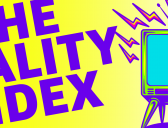Throughout the COVID-19 pandemic and pretty much ever since the UK government announced it would review the 2005 Gambling Act, activists and reformists have been vocal in their thoughts on what should change in the gambling industry.
Many of these voices have directly spoken out against gambling sponsorships in sports – especially in football. Members of the House of Lords have expressed their desire to see a ban, and so have individuals from within the All Party Parliamentary Group (APPG) alongside many others.
Since the mid-2000s, gambling sponsorships in football have become more and more prevalent. For the 2021/2022 season, nine of the Premier League’s 20 clubs have betting companies on the front of their shirts. In the 2018/2019 season, 17 of the Championship’s 24 clubs had gambling firms on their jerseys.
But are sponsorships really to blame, at least in part, for the rate of problem gambling in the UK? And is banning these partnerships going to help problem gamblers in any way?
Arguments For Banning Gambling Sponsorships in Sport
Plenty of arguments exist for banning gambling sponsorships in sport. Two of the most important arguments are:
Reducing Exposure
For any company, the benefits of sponsoring a professional football club are pretty obvious. Every Premier League match is watched by millions of people worldwide, let alone in the UK – and that’s without including the fans in stadiums.
With an audience this large, the opportunity to increase exposure is effectively handed to them on a plate. But when it comes to gambling, this might not always be a good thing.
While most players enjoy sports betting and online casino games safely, seeing betting company logos might be a trigger for others. By restricting these sponsorships in sport, problem gamblers might find it easier to stay on track in their recovery.
Removing the Association With Football Clubs
Sponsors often become synonymous with football clubs – think Newcastle Brown Ale with Newcastle United, Walkers and Leicester City, and Chang Beer with Everton.
The brain is very good at making connections, especially when it comes to brands. One possible factor that could cause individuals to begin gambling – and by extension develop problems – is if they see a specific company associated with their football club.
By removing that association, some players might choose not to gamble as much, or may avoid gambling altogether.
Arguments Against Banning Gambling Sponsorships in Sport
While banning sports clubs from partnering with gambling companies has its benefits, not everything will be sunshine and rainbows if this happens.
Like with the pros, listing every con of banning partnerships of this kind would take a while. So, we’ve narrowed it down to the two most important ones:
Banning Sponsorships Treats a Symptom, Not a Cause
Problem gambling, like any other bad habit, doesn’t develop overnight. And on top of that, the habit itself is often a symptom of a bigger problem. For example, someone might become dependent on gambling because they’re dealing with ppersonal problems that haven’t been addressed.
Banning betting sponsorships in sports might remove some triggers. However, if a problem gambler wants to spend their money on these activities, they’ll likely find a way to do so. Rather than making the symptoms a priority in terms of tackling problem gambling, we must look deeper.
Gambling Sponsorships Can Raise Awareness of Responsible Gambling
In recent years, gambling sponsorships have been worth a lot of money in the Premier League. According to a Daily Mail article published in December 2020, these partnerships were worth £70 million in England’s top fight alone.
However, these partnerships aren’t necessarily about taking and giving nothing back. In many cases, clubs and operators can come together to raise awareness for responsible gambling. We could see one example of this in November 2019, when Casumo changed its logo on Championship club Reading’s shirts to CasumoCares for Safer Gambling Week.
The operator also matched money generated from auctions in its donations to the charity GamCare.
Sure, clubs could hold initiatives like this without gambling sponsors. But at the same time, operators’ active participation adds extra weight and impetus to them.
What Could Work Instead?
It’s very difficult to say whether restricting gambling sponsorships in sports would have a material impact on curbing problem gambling, so what other options are there?
Below are four things that might help:
Invest More in Treatment That Gets to the Root of the Problem
To truly recover from an addiction, a person must identify what is causing them to adopt these destructive habits. It could be childhood traumas, a negative view of themselves, or something unrelated.
To help problem gamblers, our investment could go into initiatives to help find out what the underlying issues are in individuals, such as through problem gambling and mental health clinics. Once patients have identified the root issues and have the tools they need to block gambling sites, they would be in a better position to focus on long-term recovery.
Improve Background Checks Before Players Can Gamble – Both Online and Offline
While background checks have improved in recent years, you could argue that more still needs to be done if we want to restrict problem gamblers from spending more than they can afford.
Talks about mandatory affordability checks are a good starting point, regardless of imposing deposit limits are or not. Operators need to be able to share information more freely, as long as they can comply with data protection laws in the UK.
Make It Mandatory for Banks to Offer Gambling Transaction Blockers
2020 research by Gamcare found that around 49 million people in the UK – roughly 60% of the country’s population – had access to gambling transaction blockers on their personal bank accounts. While this is a significant amount, it also means that around 40% of individuals lack such a barrier.
While this is fine for most gamblers, it’s pretty likely that some problem gamblers (or at least people showing signs of developing such issues) exist within that 40% figure. One of the best ways to help them stop their habits is by making it mandatory for banks to include gambling transaction blocker features.
Even if every personal bank account in the UK offers gambling transaction blockers, not all users will utilise these. However, they could help a lot more people than would otherwise be the case.
Conduct More Research to See Whether There’s a Link Between Gambling Sponsorships and Problem Gambling
In recent years, we’ve seen an increase in problem gambling awareness – and by virtue, a rise in the amount of data available. But while we can correlate between different studies, we need more in-depth research to determine how strong the link is between problem gambling and betting sponsorships with sports clubs.
The increase in gambling sponsorships in sport might have contributed to a rise in problem gambling. However, several other issues could also have played a role – such as betting becoming more widespread on the go.
Before making such decisions, we must look at all the factors contributing to problem gambling – and the extent to which they do – rather than blaming one factor with the blinkers on.
Is Banning Gambling Sponsorships Really Going to Help?
Banning gambling sponsorships in sports is a possible outcome of the 2005 Gambling Act review. Some Premier League clubs have already started to shift away from having these companies on their jerseys.
While gambling sponsorships might contribute to problem gambling in the UK, not enough evidence exists at the moment to justify such drastic actions. Instead, we’d be better off by investing more in helping people get to the root cause of their gambling problems; if they don’t address these, they’ll likely pick up another bad habit – even if they stop betting.
In recent years, the industry has become more responsible in its advertising, and research has come a long way. Both of these will also play an essential role in curbing problem gambling in the long run.




